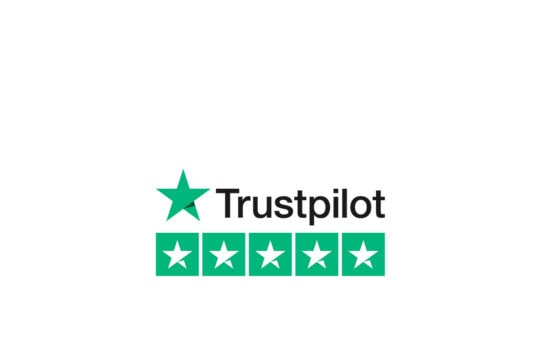Hepatitis B
Hepatitis B is a highly infectious viral infection spread by contaminated blood and body fluids.
The virus attacks the liver, causing inflammation, chronic infection, and long term damage including a high risk of liver cancer. Hepatitis B is 100 times more infectious than HIV. More than a third of the world’s population has been infected with hepatitis B and around 350 million people worldwide are chronic carriers of the virus.
Areas with a high prevalence of hepatitis B include central, western and southern Africa, and many parts of Asia and Latin America.
The risk of hepatitis be depends not just on your destination, but what you do when you get there. Increased hepatitis B risk is associated with accidents, injuries, medical or dental treatment abroad under unhygienic conditions, sexual contact, and exposure to blood, non-sterile needles, tattooing, and body piercing.
Safe, effective vaccines against hepatitis B vaccine are available and can be given from birth.
Who should be vaccinated against hepatitis B?
Vaccination against hepatitis B is advised for:
- Those who are at occupational risk (such as health care workers, aid workers, anyone whose work puts them at risk of injury)
- Travellers who visit high-risk areas
- Frequent or long-term travellers
- Travellers who have pre-existing medical conditions
- Anyone seeking or likely to need medical treatment abroad
- Travellers who carry out activities associated with risk (adventure sports, body piercing, tattoos)
- Those who participate in lifestyle behaviours that may increase the risk (such as, unprotected sex and injecting drug use)
How many doses of the hepatitis B vaccine are required?
Three doses given over 6 months; or more rapidly (over 21 days) with a fourth dose 1 year later.
The standard regimen is a course of vaccinations to be given over a 6 month period (0, 1 months, 6 months).
Those who require the vaccinations to be given more quickly, such as last-minute travellers, can receive the initial course over a shortened 3 week period (days 0, 7 and 21) followed by a booster dose one year later.
Booster doses 5 years later, or a blood test to confirm protection, may be considered in some people at high risk.
Hepatitis B can also be given in combination with Hepatitis A when protection against both diseases is required. TwinRix is available for both adults and children, and adheres to the vaccination schedule outlined above. Ambirix is licenced for children under the age of 15 years and requires 2 doses 6 months apart.
How does the hepatitis B vaccine work?
The hepatitis B vaccine contains antigens made in yeast cells using recombinant technology.
Hepatitis B vaccines are safe and do not contain hepatitis B virus but contain purified viral proteins grown in yeast cells.
These stimulates the immune system to produce antibodies that will fight and prevent hepatitis B infection.

Consider travelling with a sterile needle kit
A sterile needle kit is inexpensive and can be helpful if you are travelling to remote places where good medical care may not be available.
What is hepatitis B?
Hepatitis B is a liver infection caused by hepatitis B virus (HBV).
Hepatitis B virus attacks the liver and can cause both acute and chronic disease.
Hepatitis B becomes more serious when people have chronic (lasting for more than 6 months) infection which can lead to irreversible liver damage, including liver scarring (cirrhosis), liver failure and liver cancer.
The younger you are when you contract hepatitis B (particularly in children younger than 5), the higher your risk of the infection becoming chronic.
How is hepatitis B spread?
Hepatitis B is contracted through contact with infected blood or body fluids. This can include:
- Mother to baby transmission at the time of birth
- Unprotected sexual intercourse
- Through contaminated blood products (such as unscreened blood transfusion)
- Contaminated medical equipment (such as needles and syringes)
- Contaminated tattoo or body piercing equipment
- Through contaminated needles and syringes from injecting drug use
For travellers, accidents and injuries in remote areas or places without good medical care pose a special und unpredictable risk. Safe blood for transfusion, sterile needles and medical and dental instruments all carry a risk, which is why vaccination is important.
It can also be helpful to travel with a sterile needle kit to reduce risk in some situations.
What are the symptoms of hepatitis B?
Symptoms of hepatitis B range are often delayed and sometimes inapparent.
Most symptoms usually appear 1-4 months after you have been infected with the virus.
Symptoms of acute hepatitis B include:
- Fever
- Weakness and fatigue
- Loss of appetite
- Nausea and vomiting
- Abdominal pain
- Dark urine
- Jaundice (yellowing of your skin and whites of your eyes)
FAQs
The hepatitis B vaccine is highly effective, offering around 98% protection.
A small proportion of people fail to respond to the vaccine, which is why blood tests are sometimes used to confirm protection in high risk individuals such as healthcare workers.
Side effects are mild. The most common side effects of the vaccine include: headaches, pain and redness around the injection site, tiredness and loss of appetite. Other common side effects include a fever, feeling or being sick, diarrhoea and stomach pain, generally feeling unwell and swelling, bruising or itching around the injection site.
In 2017, hepatitis B vaccination was added to the UK childhood vaccination schedule. It is now offered to all babies at 8, 12 and 16 weeks of age. It is also offered to those thought to be at increased risk of hepatitis B or its complications.
However, if you have not been vaccinated as a child and you which to be vaccinated for travel, it is not provided free of charge by the NHS, and you will generally be referred to a private clinic such as ours.
Each dose increases the level of protection, but three doses are needed for full effect.
If you follow the standard regimen with three doses spread over six months, you will not achieve full protection until about seven months after the start of the course.
The rapid course provides faster protection, reaching full effect about one month after the initial dose, but this requires a further dose to be given one year later.
Yes. Hepatitis B is a severe and contagious viral infection that damages the liver, causes chronic liver disease, and may lead to liver cancer.
Preventing hepatitis B with vaccination should be a high priority for everyone at increased risk, including travellers.
Hepatitis B is highly infectious and is transmitted by exposure to blood or body fluids.
The virus can survive outside of the body for at least 7 days and still remain infectious.
Transmission routes include sexual exposure, exposure from contaminated medical equipment, medical or dental procedures or by a contaminated blood transfusion.
There is no specific treatment for acute viral hepatitis. Chronic treatment can involve antivirals, although this is designed to suppress the disease rather than cure it.






